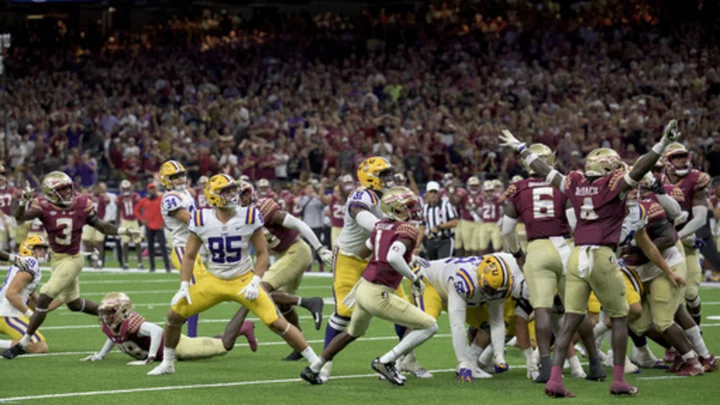A new season of "Black Mirror" is always something of an occasion, especially since Netflix opportunistically scooped up the sci-fi-ish anthology series in 2015. Coming four years after Season 5, the latest batch bats roughly two out of five in terms of memorable episodes in a run that tilts more heavily toward horror, and falls short of feeling like everything the acclaimed show is cracked up to be.
Accentuating the positive, "Joan is Awful" is an almost instant classic. The episode features Annie Murphy as Joan, a human-resources worker with a big dull job and an equally bland boyfriend, who suddenly discovers that her life appears to be getting reenacted, in almost real time, on everyone's favorite streaming service, something called "Streamberry."
The "why" of that turns out to be exceedingly clever, if not quite as much the how, but the show being television, Joan is understandably conflicted about being played by Salma Hayek Pinault, who dives into the role with juicy abandon. Nor is it an accident that "Joan" best exemplifies the show's trademark unease about technology and how it might be contorting our lives.
The runner-up, "Beyond the Sea," is the longest of the episodes at 80 minutes, and possesses an out-there sci-fi element that recalls "2001: A Space Odyssey," involving a pair of astronauts (Aaron Paul and Josh Hartnett) who can project their consciousness back to Earth, allowing them to interact with their wives and families. When an unforeseen event occurs at home, it alters the dynamics of their relationship, which can be very, very awkward on a two-man mission whose viability relies on both fulfilling their roles.
The quality drops markedly beyond that, with "Mazey Day" featuring a conflicted paparazzi (Zazie Beetz) who begins pursuing a famous actress and bites off more than she bargained for; "Loch Henry," in which a pair of young aspiring filmmakers (Samuel Blenkin and Myha'la Herrold) return to the former's Scottish home town, where she learns of a sordid past that propels them into the world of true crime; and "Demon 79," easily the weirdest and most polarizing of the bunch, in which a quiet sales clerk (Anjana Vasan) is the unlikely conduit chosen by a bureaucratic demon (Paapa Essiedu) to save the world from annihilation.
As usual, producer Charlie Brooker handles the writing chores (teaming with Bisha K Ali on "Demon 79"), and the episodes are generally both playful and provocative, including the aforementioned poke at the platform that feeds it.
Still, "Black Mirror" has distinguished itself as, at its best, "The Twilight Zone" for our times, adept at tapping into the apprehensions associated with issues like social media, gaming and artificial intelligence, among other modern distractions and conveniences.
The new season strikes a few glancing blows on that front, but otherwise appears content to be creepy without being consistently distinctive in a way characteristic of its best installments.
Brooker remains an astute observer of the modern age, with a sharp ear for the current nexus of pop culture, politics and technology. But where "Black Mirror" once felt bracing and new, the latest season only occasionally rises to the level that would vault it to the top of one's Streamberry -- er, sorry, Netflix -- watch list.
The five-episode sixth season of "Black Mirror" premieres June 15 on Netflix.









